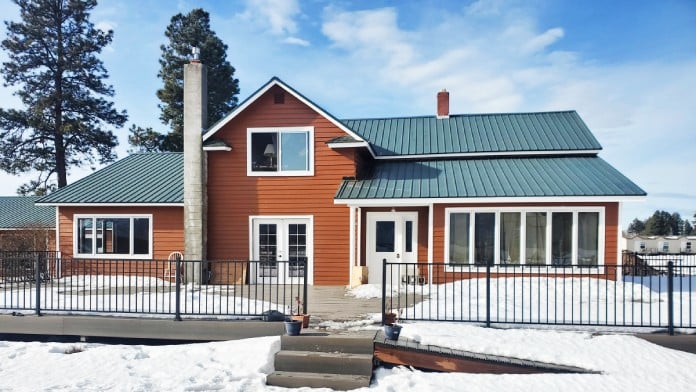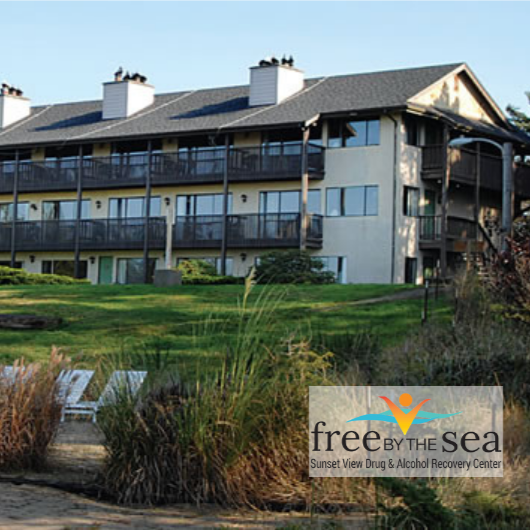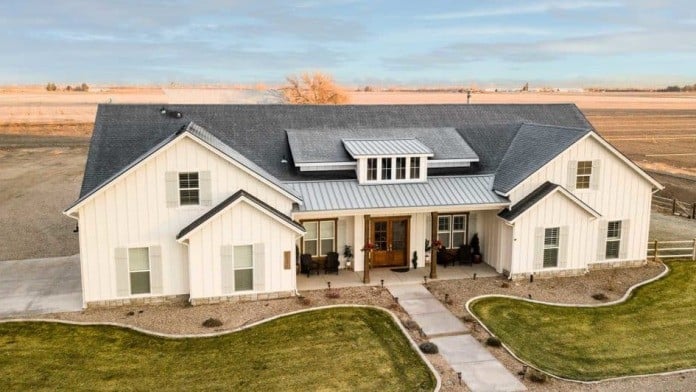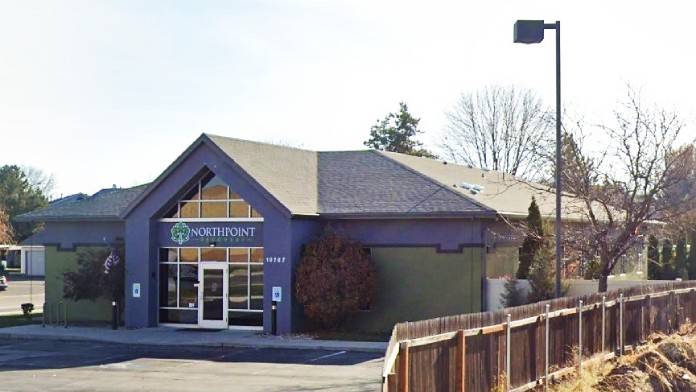Possibly the worst experience in my entire life. Simply cannot believe that ANY state allows this criminal enterprise with the facade of a business, to collect Medicaid on behalf of the most vulnerable population among us. The entire operation is a case study in what is wron ...
About Western Montana Mental Health Center – Adult
Western Montana Mental Health Center has locations throughout Montana, including this facility in Kalispell. The center offers addiction and co-occurring mental health disorder treatment. Clients can also get medication-assisted treatment (MAT) for opioid use disorder (OUD). The facility accepts most insurance and will work with your company to get you the best benefits. Additionally, they accept Medicare and Medicaid.
Medication Assisted and SUD Treatment in Kalispell, Montana
Kalispell is a charming mountain town with a lively arts scene and a historic downtown area. It’s the gateway to Glacier National Park, and it’s possible to see grizzly bears and other wildlife since the town is so close to their habitat in the Flathead National Forest and the park.
The center offers outpatient programs for adult SUD treatment, including a MAT program. The outpatient programs include an outpatient and intensive outpatient program (IOP). The programs include group and individual therapy sessions.
The SUD treatment includes intervention services for clients with a Misdemeanor Dangerous Drug (MDD) citation. Additionally, for clients convicted of driving under the influence (DUI), they offer the ACT (assessment, course, and treatment) program.
Accessing Mental Health Treatment and Supportive Services in Flathead County
The center offers several mental health services and programs, including psychiatric medication management. One of the nice things about this treatment center is the breadth of treatment programs available.
Clients can attend an adult day treatment program that provides a positive environment where individuals learn to improve their social skills. Clients gain the knowledge and skills they need to manage their mental health symptoms and achieve independent living.
It’s not uncommon for clients with mental health issues to end up involved in the criminal justice system. The center has jail diversion programs to treat and support mentally ill clients during prearrest, incarceration, and release from detention.
They help incarcerated clients through therapy, case management, peer support services, and addiction evaluations. By connecting clients to behavioral health services, they reduce the rates of recidivism.
The health center offers many other services, including child and adolescent mental health and SUD treatment programs.
Latest Reviews
Rehab Score
Gallery
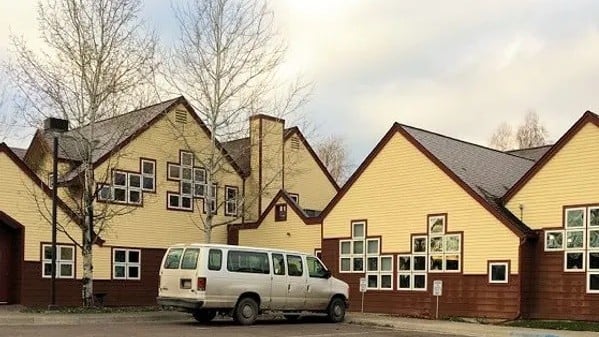
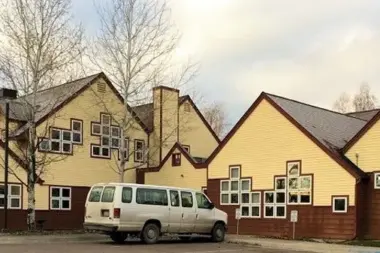
Other Forms of Payment
Medicaid is a state based program that helps lower-income individuals and families pay for healthcare. Medicaid covers addiction treatment so those enrolled can use their coverage to pay for rehab. When a program accepts Medicaid the client often pays very little or nothing out of their own pocket.
Private insurance refers to any kind of healthcare coverage that isn't from the state or federal government. This includes individual and family plans offered by an employer or purchased from the Insurance Marketplace. Every plan will have different requirements and out of pocket costs so be sure to get the full details before you start treatment.
Self-pay involves paying for treatment out of your own pocket. You can use savings or credit, get a personal loan, or receive help from family and friends to fund your treatment. If you don't have insurance or your insurance plan doesn't cover a specific program, self-pay can help ensure you still get the care you need.
Financial aid can take many forms. Centers may have grants or scholarships available to clients who meet eligibility requirements. Programs that receive SAMHSA grants may have financial aid available for those who need treatment as well. Grants and scholarships can help you pai for treatment without having to repay.
Sliding scale payments are based on a client's income and family size. The goal is to make treatment affordable to everyone. By taking these factors into account, addiction recovery care providers help ensure that your treatment does not become a financial burden to you or your family, eliminating one barrier to care.
Medicare is a federal program that provides health insurance for those 65 and older. It also serves people under 65 with chronic and disabling health challenges. To use Medicare for addiction treatment you need to find a program that accepts Medicare and is in network with your plan. Out of pocket costs and preauthorization requirements vary, so always check with your provider.
Military members, veterans, and eligible dependents have access to specific insurance programs that help them get the care they need. TRICARE and VA insurance can help you access low cost or no cost addiction and mental health treatment. Programs that accept military insurance often have targeted treatment focused on the unique challenges military members, veterans, and their families face.
Private insurance refers to any kind of healthcare coverage that isn't from the state or federal government. This includes individual and family plans offered by an employer or purchased from the Insurance Marketplace. Every plan will have different requirements and out of pocket costs so be sure to get the full details before you start treatment.
Addiction Treatments
Levels of Care
Outpatient Programs (OP) are for those seeking mental rehab or drug rehab, but who also stay at home every night. The main difference between outpatient treatment (OP) and intensive outpatient treatment (IOP) lies in the amount of hours the patient spends at the facility. Most of the time an outpatient program is designed for someone who has completed an inpatient stay and is looking to continue their growth in recovery. Outpatient is not meant to be the starting point, it is commonly referred to as aftercare.
Residential treatment programs are those that offer housing and meals in addition to substance abuse treatment. Rehab facilities that offer residential treatment allow patients to focus solely on recovery, in an environment totally separate from their lives. Some rehab centers specialize in short-term residential treatment (a few days to a week or two), while others solely provide treatment on a long-term basis (several weeks to months). Some offer both, and tailor treatment to the patient's individual requirements.
Multiple technologies are now utilized to support telehealth, which provides healthcare services remotely. Examples include digital photography, store-and-forward technologies, video and audio technologies, and remote patient monitoring (RPM).
Treatments
Many of those suffering from addiction also suffer from mental or emotional illnesses like schizophrenia, bipolar disorder, depression, or anxiety disorders. Rehab and other substance abuse facilities treating those with a dual diagnosis or co-occurring disorder administer psychiatric treatment to address the person's mental health issue in addition to drug and alcohol rehabilitation.
Mental health rehabs focus on helping individuals recover from mental illnesses like bipolar disorder, clinical depression, anxiety disorders, schizophrenia, and more. Mental health professionals at these facilities are trained to understand and treat mental health issues, both in individual and group settings.
Alcohol addiction (also called alcoholism or alcohol use disorder) is defined as a chronic disorder involving compulsive drinking of alcohol. Many treatment options are available for this addiction, based on frequency of consumption and severity of alcohol abuse. Most alcohol rehab in Montana involves detoxification, psychotherapy, and social supports. Family involvement is often encouraged, and ongoing support after rehab is essential.
A comprehensive drug rehab in Montana treats the entire person. Treatment methods address all the underlying causes of addiction and give the individual the tools they need to live a healthy, drug-free life.
Addiction treatment programs In Montana provide comprehensive rehab for individuals struggling with substance abuse. Levels of care can include residential rehab, detox, and intensive outpatient programs. Substance abuse treatments include interventions like cognitive behavioral therapy, or dialectical behavioral therapy, educational groups, skills training, and family counseling. The benefits of substance abuse treatment are improved health and increased odds of long-term sobriety.
Programs
Adult rehab programs include therapies tailored to each client's specific needs, goals, and recovery progress. They are tailored to the specific challenges adult clients may face, including family and work pressures and commitments. From inpatient and residential treatment to various levels of outpatient services, there are many options available. Some facilities also help adults work through co-occurring conditions, like anxiety, that can accompany addiction.
Young adulthood can be an exciting, yet difficult, time of transition. Individuals in their late teens to mid-20s face unique stressors related to school, jobs, families, and social circles, which can lead to a rise in substance use. Rehab centers with dedicated young adult programs will include activities and amenities that cater to this age group, with an emphasis on specialized counseling, peer socialization, and ongoing aftercare.
Clinical Services
Cognitive Behavioral Therapy (CBT) is a therapy modality that focuses on the relationship between one's thoughts, feelings, and behaviors. It is used to establish and allow for healthy responses to thoughts and feelings (instead of unhealthy responses, like using drugs or alcohol). CBT has been proven effective for recovering addicts of all kinds, and is used to strengthen a patient's own self-awareness and ability to self-regulate. CBT allows individuals to monitor their own emotional state, become more adept at communicating with others, and manage stress without needing to engage in substance abuse.
Whether a marriage or other committed relationship, an intimate partnership is one of the most important aspects of a person's life. Drug and alcohol addiction affects both members of a couple in deep and meaningful ways, as does rehab and recovery. Couples therapy and other couples-focused treatment programs are significant parts of exploring triggers of addiction, as well as learning how to build healthy patterns to support ongoing sobriety.
Dialectical Behavior Therapy (DBT) is a modified form of Cognitive Behavioral Therapy (CBT), a treatment designed to help people understand and ultimately affect the relationship between their thoughts, feelings, and behaviors. DBT is often used for individuals who struggle with self-harm behaviors, such as self-mutilation (cutting) and suicidal thoughts, urges, or attempts. It has been proven clinically effective for those who struggle with out-of-control emotions and mental health illnesses like Borderline Personality Disorder.
Experiential therapy is a form of therapy in which clients are encouraged to surface and work through subconscious issues by engaging in real-time experiences. Experiential therapy departs from traditional talk therapy by involving the body, and having clients engage in activities, movements, and physical and emotional expression. This can involve role-play or using props (which can include other people). Experiential therapy can help people process trauma, memories, and emotion quickly, deeply, and in a lasting fashion, leading to substantial and impactful healing.
Research clearly demonstrates that recovery is far more successful and sustainable when loved ones like family members participate in rehab and substance abuse treatment. Genetic factors may be at play when it comes to drug and alcohol addiction, as well as mental health issues. Family dynamics often play a critical role in addiction triggers, and if properly educated, family members can be a strong source of support when it comes to rehabilitation.
Group therapy is any therapeutic work that happens in a group (not one-on-one). There are a number of different group therapy modalities, including support groups, experiential therapy, psycho-education, and more. Group therapy involves treatment as well as processing interaction between group members.
In individual therapy, a patient meets one-on-one with a trained psychologist or counselor. Therapy is a pivotal part of effective substance abuse treatment, as it often covers root causes of addiction, including challenges faced by the patient in their social, family, and work/school life.
Nicotine Replacement Therapy (NRT) is a way of getting nicotine into the bloodstream without smoking. It uses products that supply low doses of nicotine to help people stop smoking. The goal of therapy is to cut down on cravings for nicotine and ease the symptoms of nicotine withdrawal.
Trauma therapy addresses traumatic incidents from a client's past that are likely affecting their present-day experience. Trauma is often one of the primary triggers and potential causes of addiction, and can stem from child sexual abuse, domestic violence, having a parent with a mental illness, losing one or both parents at a young age, teenage or adult sexual assault, or any number of other factors. The purpose of trauma therapy is to allow a patient to process trauma and move through and past it, with the help of trained and compassionate mental health professionals.
Staff
Bob Lopp
CEO
Cory DeStein, LPN
Chief Administrative Officer
Aubrey Reed, MA, MSW, LCSW,PMH-C
Chief Clinical Officer
Patrick Maidman, MD
Medical Director
Callie Holleran, RN
Director, Nursing
Keri Stephanoff, LCSW, LCPC, LBA, BCBA, CMHPP
Director, CFSN, MH Outpatient, Day Treatment, Case Management
Amberlee Jorgenson, LCPC
Director, PACT/MACT, PATH, Residential Group Home
Brittany Blair
Director of 988 Suicide & Crisis Lifeline
Theresa Marshall
Director, Human Resources
Colter Schilling
Director, Information Services
Ryan Bailey
Director, Support Services
Contact Information
410 Windward Way
Kalispell, MT 59901
